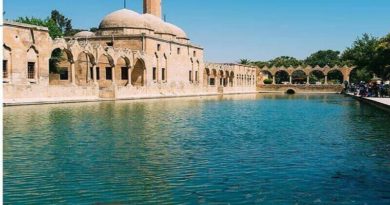Kurds and Kurdish History
Kurds and Kurdish History
The history of the Kurdish people is a rich and complex one, spanning thousands of years and marked by conflicts, conquests, and cultural achievements. In this essay, we will analyze 10 key outlines of Kurdish history, exploring the origins of the Kurdish people, their struggles for autonomy and independence, and the impact of outside forces on their identity and culture.
One of the earliest mentions of the Kurdish people can be found in ancient sources dating back to the 3rd millennium BCE. The Kurds are believed to be descendants of the ancient Medes, who were an Indo-European group that inhabited the region of Media in what is now Iran. The Kurdish language is also closely related to the Iranian languages, further supporting the theory of a shared ancestry with the Medes.
The Kurdish people have a long history of nomadic and semi-nomadic lifestyles, with many Kurds traditionally engaged in herding, agriculture, and trade. This lifestyle has contributed to their resilience and adaptability in the face of external pressures and conflicts, as well as their distinct cultural identity and traditions.
Throughout history, the Kurdish people have faced numerous challenges to their autonomy and independence, often at the hands of powerful empires and states. The Kurds have been subjected to forced assimilation, oppression, and violence by various rulers, including the Ottoman Empire, the Safavids, and the modern nation-states of Turkey, Iran, Iraq, and Syria.
Despite these challenges, the Kurds have maintained a strong sense of ethnic and cultural identity, with a shared language, history, and traditions that bind them together as a distinct group. The Kurdish language, which is part of the Iranian branch of the Indo-European language family, is a key marker of Kurdish identity and pride.
One of the defining moments in Kurdish history is the partitioning of Kurdish-inhabited territories by the colonial powers following World War I. The Treaty of Sèvres in 1920 promised the Kurds an independent state, but this promise was later reneged upon in the Treaty of Lausanne in 1923, which established the modern borders of Turkey, Iraq, and Syria, effectively dividing Kurdish lands among these states.
The Kurds have long sought autonomy and self-determination, often resorting to armed resistance and rebellion to assert their rights. The Kurdish nationalist movement, which emerged in the early 20th century, has been marked by both peaceful political activism and armed struggle against repressive regimes.
The Kurdish struggle for independence has been met with harsh repression and violence by the states in which they reside, particularly Turkey and Iran. The Turkish government, in particular, has waged a brutal campaign against Kurdish separatists, including the Kurdistan Workers’ Party (PKK), which has been designated as a terrorist organization by Turkey and other states.
The Kurdish people have also been deeply affected by the conflicts in the Middle East, including the Iraq-Iran War, the Gulf War, and the Syrian Civil War. These conflicts have further divided Kurdish lands and people, exacerbating tensions and fuelling sectarian and ethnic violence.
Despite these challenges, the Kurds have made significant strides in recent years towards achieving greater recognition and rights within the countries in which they reside. In Iraq, the Kurdish Regional Government (KRG) has developed into a relatively autonomous region with its own government, parliament, and military forces.
Overall, the history of the Kurdish people is one of resilience, struggle, and perseverance in the face of adversity. The Kurds have a rich cultural heritage and a strong sense of identity that have enabled them to endure centuries of persecution and oppression, and to continue their quest for autonomy and independence in the modern era.
References:
- McDowall, David. “A Modern History of the Kurds.” I.B. Tauris, 2004.
- van Bruinessen, Martin. “Kurds, Kurds, Kurdish.” Encyclopædia Iranica, vol. XVI. 2010.



